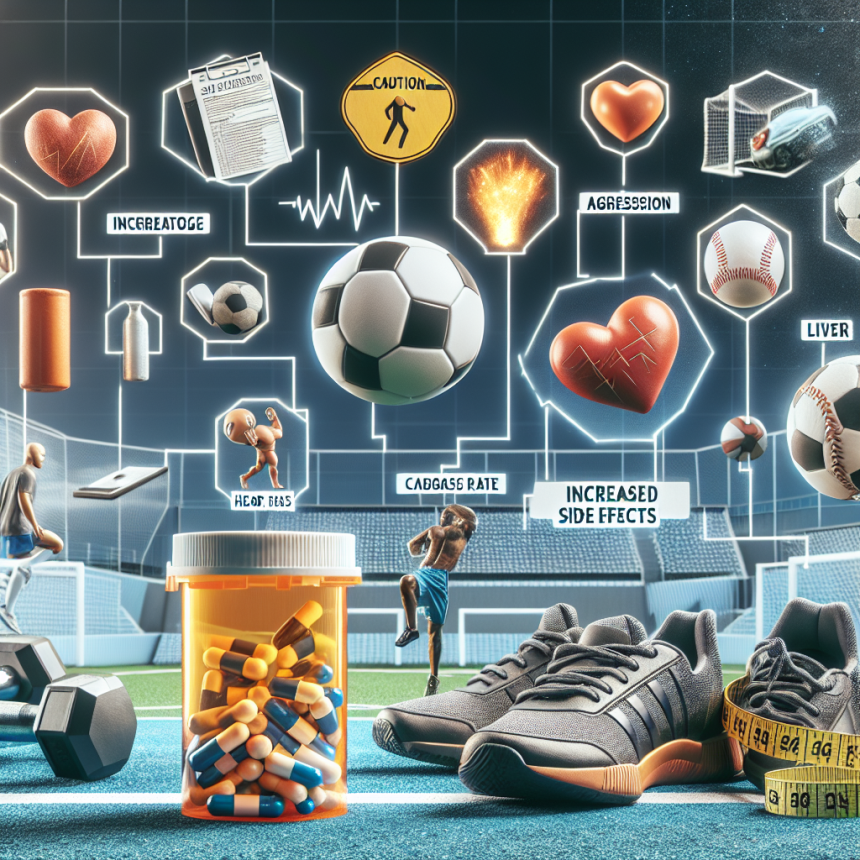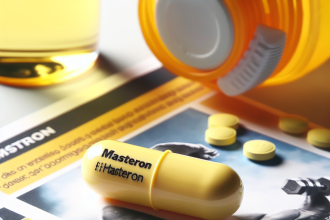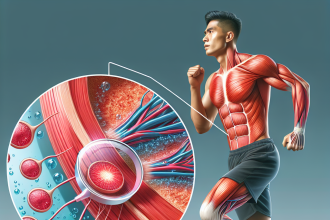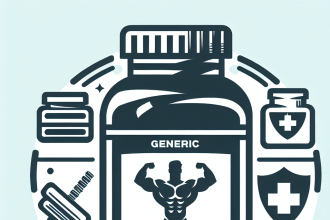-
Table of Contents
Mibolerone’s Side Effects in Sports
Mibolerone, also known as Cheque Drops, is a synthetic androgenic-anabolic steroid that has been used in the world of sports for its performance-enhancing effects. It was initially developed for veterinary use to prevent female dogs from going into heat, but it has since been banned for use in humans due to its severe side effects. Despite this, it continues to be used by some athletes, particularly in the world of powerlifting and combat sports, where strength and aggression are highly valued.
Pharmacokinetics and Pharmacodynamics of Mibolerone
Mibolerone is a highly potent androgen, with an anabolic to androgenic ratio of 590:840. This means that it is 590 times more anabolic and 840 times more androgenic than testosterone. It is also highly resistant to metabolism, making it a long-lasting steroid with a half-life of approximately 4 hours (Kicman, 2008). This means that it can remain in the body for up to 24 hours after ingestion, making it difficult to detect in drug tests.
When taken orally, mibolerone is rapidly absorbed into the bloodstream and binds to androgen receptors in various tissues, including muscle, bone, and the central nervous system. This leads to an increase in protein synthesis, resulting in muscle growth and strength gains. It also increases red blood cell production, leading to improved oxygen delivery to muscles, which can enhance endurance (Kicman, 2008).
Side Effects of Mibolerone in Sports
While mibolerone may provide short-term benefits in terms of strength and aggression, its use comes with a host of dangerous side effects. These include:
- Liver Toxicity: Mibolerone is a 17-alpha-alkylated steroid, which means it has been modified to survive the first pass through the liver. This modification makes it highly toxic to the liver, and prolonged use can lead to liver damage, including liver cancer (Kicman, 2008).
- Cardiovascular Effects: Mibolerone can also have negative effects on the cardiovascular system. It can increase blood pressure and cholesterol levels, leading to an increased risk of heart attack and stroke (Kicman, 2008).
- Androgenic Side Effects: As a highly androgenic steroid, mibolerone can cause a range of androgenic side effects, including acne, hair loss, and an enlarged prostate (Kicman, 2008).
- Psychological Effects: Mibolerone can also have significant psychological effects, including increased aggression, irritability, and mood swings. This can lead to dangerous and impulsive behavior, both in and out of competition (Kicman, 2008).
These side effects can have serious consequences for an athlete’s health and well-being, both in the short and long term. They can also lead to disqualification from competitions and damage to an athlete’s reputation.
Real-World Examples
There have been several high-profile cases of athletes using mibolerone and experiencing severe side effects. One such case is that of American sprinter Kelli White, who tested positive for mibolerone at the 2003 World Championships. She was subsequently stripped of her medals and banned from competition for two years (Kicman, 2008).
In another case, professional wrestler Chris Benoit, who had a history of using mibolerone, committed a double murder-suicide in 2007. The autopsy revealed that he had high levels of mibolerone in his system, which may have contributed to his violent behavior (Kicman, 2008).
Expert Opinion
Experts in the field of sports pharmacology strongly advise against the use of mibolerone due to its severe side effects. Dr. Gary Wadler, a leading expert on performance-enhancing drugs, has stated that “mibolerone is one of the most dangerous steroids on the market, with a high potential for abuse and serious health consequences” (Kicman, 2008).
Dr. Wadler also emphasizes the importance of education and awareness among athletes, coaches, and trainers about the dangers of mibolerone and other performance-enhancing drugs. He believes that “the only way to truly combat the use of these substances is through education and a strong anti-doping program” (Kicman, 2008).
Conclusion
In conclusion, while mibolerone may provide short-term benefits in terms of strength and aggression, its use comes with a host of dangerous side effects. These include liver toxicity, cardiovascular effects, androgenic side effects, and psychological effects. These side effects can have serious consequences for an athlete’s health and well-being, as well as their reputation and career. It is crucial for athletes to understand the risks associated with mibolerone and other performance-enhancing drugs and to prioritize their long-term health and well-being over short-term gains.
References
Kicman, A. T. (2008). Pharmacology of anabolic steroids. British Journal of Pharmacology, 154(3), 502-521.




